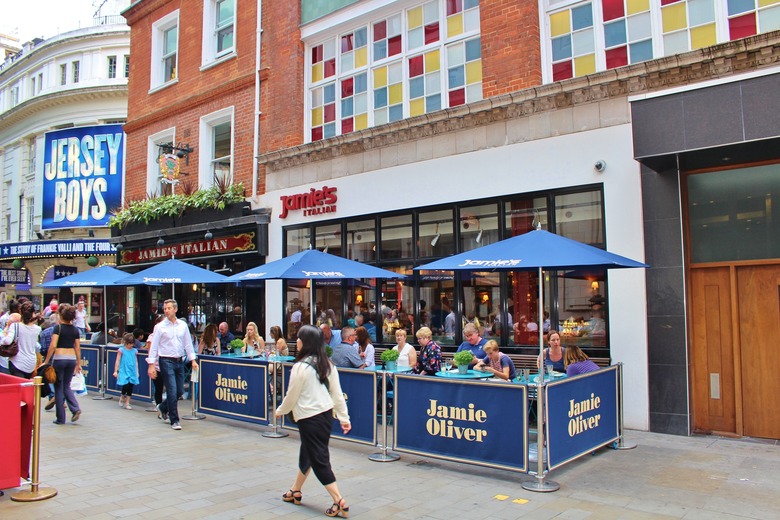Jamie Oliver Adds A 'Sugar Tax' To Curb Soda Purchases In Restaurants
Chef and healthy eating advocate Jamie Oliver recently collaborated with researchers to conduct an in-house study in the United Kingdom that suggests raising prices on sugary drinks could curb customers' impulses toward unwise nutrition choices.
When the prices of sugary beverages were bumped up by just 10 pence (the equivalent of 13 cents), sales declined by 9 percent. The beverages under attack were the sugary, chemical-laden soft drinks — not the restaurants' in-house, crafted drinks. The locations began to offer healthier drink options as an alternative, explaining to customers that money from the health initiative was being donated to charity.
Experts say that since so many variables outside of price were altered for the consumer's experience, further research is needed to pinpoint what part of the initiative encouraged healthier choices. Additionally, Oliver's particular breed of customers might be more inclined to make healthier choices than chain restaurant customers. As such, the study doesn't provide a definitive blueprint for the rest of the restaurant industry.
But Oliver's study lends support to a growing chorus advocating that the British government place a "sugar tax" on beverages such as Coca-Cola and Pepsi. Oliver has historically been vocal in his support of the idea, introducing low-sugar alternatives to his own menus such as fruit-infused waters and spritzers.
Health experts seem to agree with Oliver. "A small levy on sugar-sweetened drinks sold in restaurants, coupled with complementary activities, may have the potential to change consumer behavior," said lead study author Steven Cummins.
However, many readers of the study want more data before making a change. Calls for records of tap water choices, overall shifts in sales, and alcohol sales resounded from the scientific community. If consumers were switching to booze instead of soda, it might not be so healthy a change.
